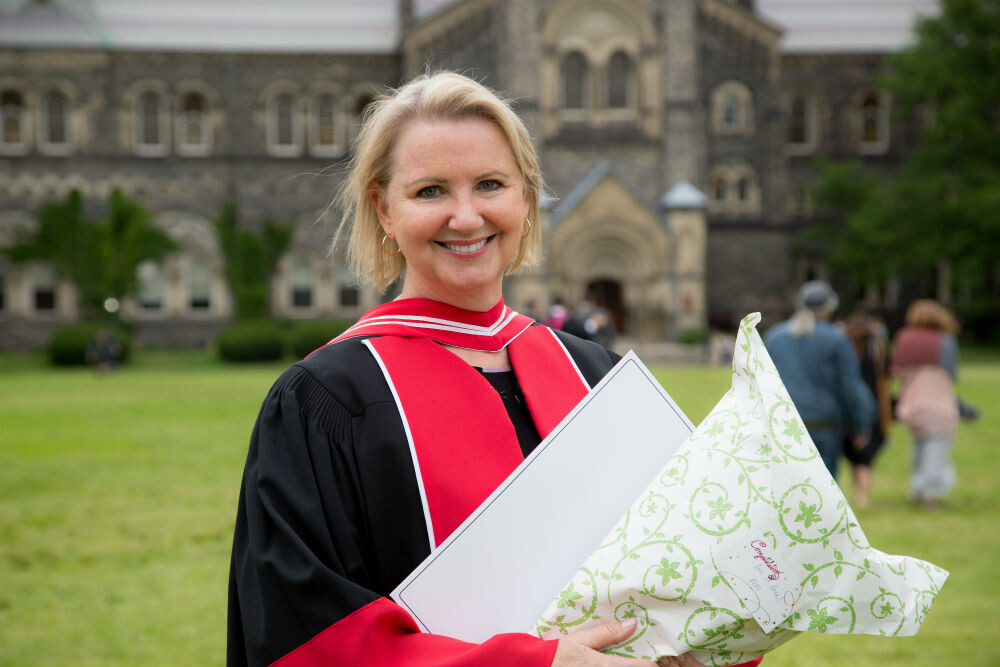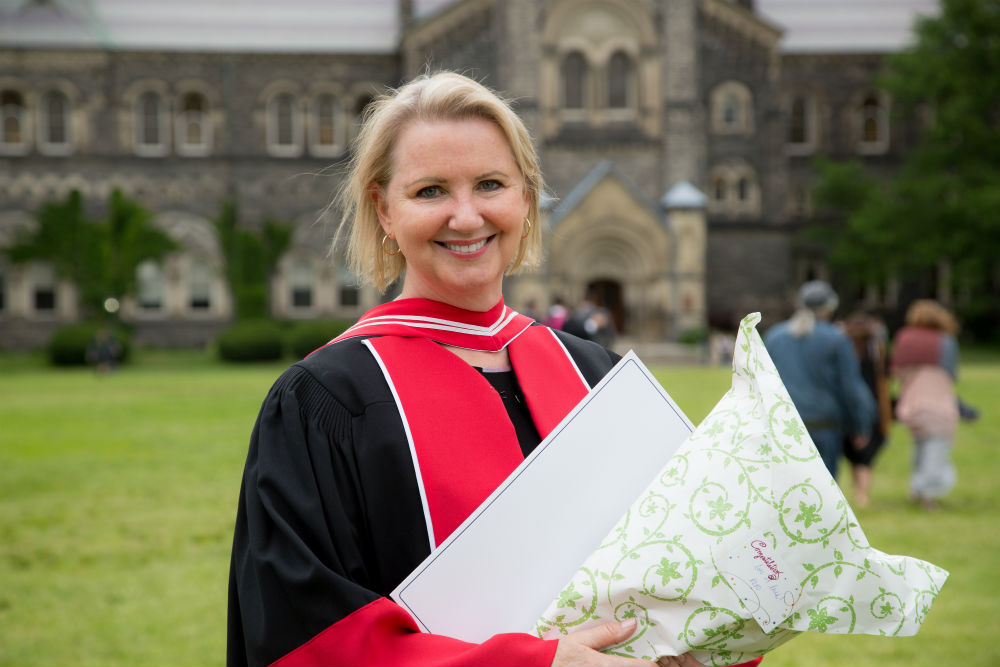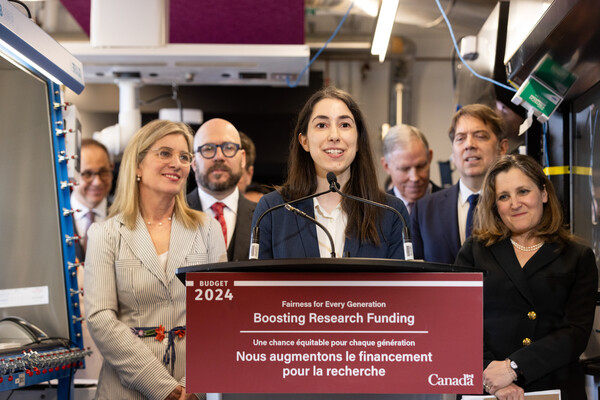Mobile Menu
- Education
- Research
-
Students
- High School Outreach
- Undergraduate & Beyond: Community of Support
- Current Students
- Faculty & Staff
- Alumni
- News & Events
- Giving
- About

 Could efforts to integrate children with disabilities into mainstream schools be causing unintended harm? Gail Teachman is researching this question, and has raised some important flags. Graduating this week with a PhD in Rehabilitation Sciences, she’s among 13,500 U of T students crossing the stage at Convocation Hall in ceremonies running from May 31 until June 16. She was also recently awarded the prestigious Governor General’s Gold Medal for her work in childhood disability. Here’s a glimpse into her research and her plans for the future. Share your convocation memories with us using the hashtag #UofTGrad16.
Could efforts to integrate children with disabilities into mainstream schools be causing unintended harm? Gail Teachman is researching this question, and has raised some important flags. Graduating this week with a PhD in Rehabilitation Sciences, she’s among 13,500 U of T students crossing the stage at Convocation Hall in ceremonies running from May 31 until June 16. She was also recently awarded the prestigious Governor General’s Gold Medal for her work in childhood disability. Here’s a glimpse into her research and her plans for the future. Share your convocation memories with us using the hashtag #UofTGrad16.
What aspect of childhood disability does your research focus on?
My research explores the social values and beliefs that perpetuate the marginalization of children with impairments. I worked for many years as an occupational therapist at Holland Bloorview Kids Rehabilitation Hospital here in Toronto. There is a growing body of research exploring children's experiences growing up with a disability, but very few studies have been done with children and youth who have little or no speech. Even though these young people use augmentative and alternative communication (AAC), people most often assume they have little to say. My research questioned idealized notions of “inclusion” by examining dominant social discourses in relation to the lives and subjective views of this group of young people. And I’ve been fortunate to work with Dr. Barb Gibson and Dr. Colin Macarthur as my graduate supervisors, and Dr. Peggy McDonough as my committee advisor.
What is an example of an idealized notion of “inclusion”?
One example is the “special education” programs within mainstream schools. This is considered a move toward inclusion, but I found through my interviews that many felt excluded in these environments. It set up a “normal students” versus “special students” dynamic, where disabled students had almost no social interaction with their non-disabled peers. My work highlights the importance of reflecting critically on how deficit-based biomedical approaches inadvertently reproduce negative valuations of disabled children's lives.
What does the Governor General’s Gold Medal mean for you and for your work?
I am thrilled that this award brings attention not only to the exclusionary conditions experienced by youth who participated in the research — even in so-called “inclusive” social spaces — but also the creative ways that they and their families developed inclusive settings on their own terms. For example, some youth reformulated conceptualizations of “friendship” to embrace the meaningful connections they formed with personal support workers. Others actively sought out opportunities to volunteer in settings where they felt valued for their unique contributions instead of judged by their impairments.
What are your next steps in terms of research?
I am part of a team called VOICE (Views on Interdisciplinary Childhood Ethics), which is funded by the Social Sciences and Humanities Research Council and led by McGill University Professor Dr. Franco Carnevale. Through a three-year CIHR postdoctoral fellowship, I will build on my doctoral work to explore the everyday “moral experiences” of disabled children and their families and how understandings of the “best interests of the child”, children's agency and family-centred care intersect to mediate those experiences. In the future, I hope to secure a position with a research institute and resume academic teaching.
What advice do you have for incoming students?
I would advise incoming students to take advantage of the fabulous resources on offer at University of Toronto. I took a number of writing workshops and participated in a dissertation boot-camp — all provided by the School of Graduate Studies’ English Language and Writing Support. For students who are embarking on qualitative research, I highly recommend the series of courses and workshops provided by the University’s Centre for Critical Qualitative Health Research.
What do you do when you’re not in school?
Since completing my PhD, I am enjoying more time spent with family and friends, as well as my rather neglected garden.
Faces of U of T Medicine introduces you to some of the interesting people studying in the Faculty of Medicine. From advising political leaders to providing care to Toronto’s most vulnerable populations, our students are making an impact on communities at home and around the world.
Do you have an interesting story to share? Contact us at medicine.communications@utoronto.ca.

